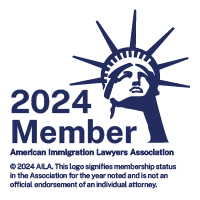On August, 9, 2018, U.S. Citizenship and Immigration Services (USCIS) published a policy memorandum that has a great impact on many students that are currently attending classes or working on OPT. We suspect that it may also affect employers’ decision to explore new visa options to avoid losing their valuable employees due to the accrual of unlawful presence.
The policy mentions that any students who “failed to maintain their nonimmigrant status,” or violates their status, would start accruing unlawful presence as of August 9, 2018 or as of the date of the status violation, whichever is earlier.
What is unlawful presence versus status violation?
The presence in the U.S. after the expiration of the authorized period of stay, or any presence without being admitted or paroled is considered to be unlawful presence.
On the other hand, status violation refers to the failure to follow all the regulations of your immigration status, such as not providing required reporting, or engaging in unauthorized activity.
USCIS policy memorandum is unclear regarding what they would consider as a “status violation”. Generally, a clear line for someone who is here on a F visa, a status violation occurs when you stop going to school. However, there may be other situations that could amount to a status violation while you are still in school, for example, when you drop down to less than half-time of studying.
How unlawful presence is calculated for students?
Before the August 9th, 2018 policy, any changes in attending school had no implications for an international student in Duration of Status (D/S) unless and until an immigration officer or immigration judge determines that there has been a status violation. At that point, the student would begin accruing unlawful presence.
The new policy changes how unlawful presence is calculated. Now, it will begin to be counted on the day after the commitment of the violation, even without an immigration officer or immigration judge determination. So, if a student leaves the course of study or engages in unauthorized activity, unlawful presence will start counting automatically on the day after the violation of the visa terms.
There are some situations that a student, generally, would not accrue unlawful presence, such as while the F-1 student’s application for post-completion OPT is pending, during annual vacation, or additional grace period.
What problems may students encounter?
The new policy conflates the two different concepts of unlawful presence and status violation together. The greatest concern now is that many students and exchange visitors will only know that they have violated their status and are accruing unlawful presence when they apply for change of status to another visa, for an extension of their current visa, or for employment authorization, and they may be found inadmissible retroactively back to the date of the violation.
And this could have serious consequences. Without knowing that they are in status violation, the student may already be barred from reentering the U.S. for 3 or 10 years, depending on the time period of the unlawful presence.
If you are here on OPT or H-1B, what implications would you face?
Special attention for the accuracy of the data contained in SEVIS is required now, since USCIS will rely upon information in the SEVIS, as well as in other records. In addition, students on OPT should stick to their field of study while working to not have problems in a future application for employment authorization, such as H-1B.
For Example: after graduation, a student started his one-year period of OPT, but the work was not in an area consistent with his field of study. Now, when this student applies for OPT extension or H-1B, USCIS might deny his petition or change of status, stating that he worked in a non-related field, so it was unauthorized work. At this point, the student may have accrued enough time to be subjected to the 3 or 10 years bar to re-enter the U.S.
Under this new policy, unlawful presence would have been triggered without any formal notice, even if the violation was unintentionally or the student was unaware of the violation.
Therefore, employers who are going to file new H-1B visas for their OPT employees must be aware of the fulfillment of visa requirements by the worker, such as period of allowed unemployment, required reports, and work related to the field of study, in order to avoid losing their valuable employees due to their accrual unlawful presence. By the time they receive a denial decision of the application for change of status based on a previous status violation, it may already be too late.
Those holding H-1B status, who quit their job and start working for a new employer without filing a new Form I-129, will have engaged in unauthorized employment, as well.
Also, since the longer you wait to a decision on extension or change of status, the more severe the bar penalties can be, going for premium processing for H-1B applications, when available, might be recommended.
What should I do?
If you believe you may be in status violation of your student visa, you may be accruing unlawful presence. This could prevent you from returning to the U.S. if you ever have to leave the country for any reason.
Contact our law firm as soon as possible to see if you are eligible for another type of visa. Zhang-Louie, Immigration Legal Counsel is a law firm in Malden, Massachusetts with multi-lingual language capabilities – Mandarin Chinese, Portuguese and Spanish.

